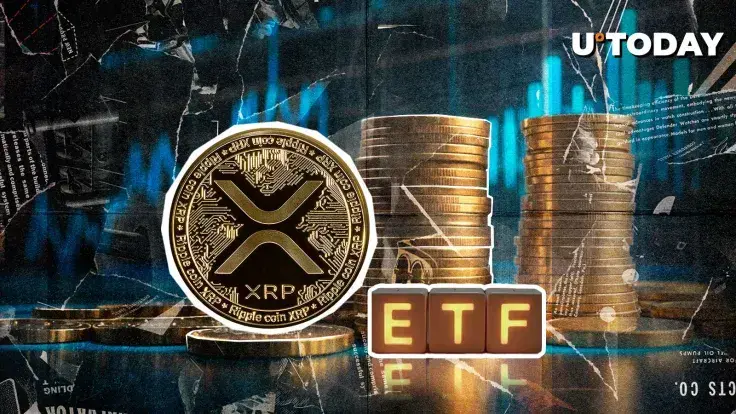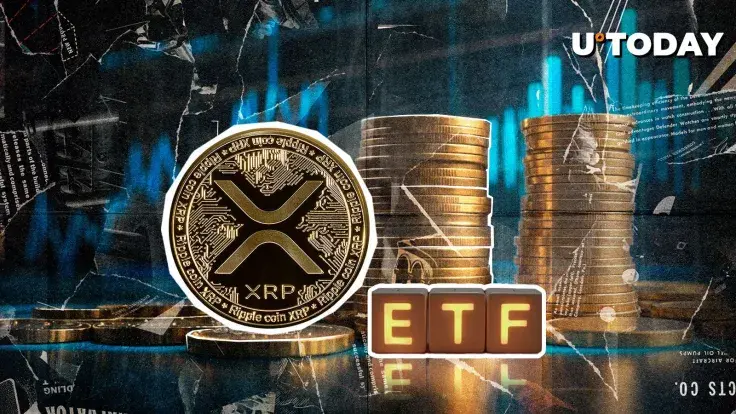XRP ETF Hype Explodes: Proposals Filed, Experts Debate Market Impact

The potential for XRP exchange-traded funds (ETFs) has ignited a fervent debate among cryptocurrency analysts and investors, with differing views on their prospective demand and market impact. While some foresee significant institutional interest, others remain skeptical, drawing comparisons to the early days of Bitcoin and Ethereum ETFs.
Bloomberg senior ETF analyst Eric Balchunas clarified earlier statements, asserting that Bloomberg analysts never claimed there was no demand for XRP, but rather that demand would naturally be less than for Bitcoin ETFs, given Bitcoin's greater market distance. However, Nate Geraci, President of NovaDius Wealth Management and a respected ETF observer, strongly argues that investor demand for spot XRP ETFs is being "badly misread" and severely underestimated. He draws parallels to the initial dismissal of Bitcoin and Ethereum ETFs, which subsequently saw billions in inflows upon approval. This sentiment is echoed by Canary Capital CEO Steven McClurg, who predicted XRP ETFs could attract an impressive $5 billion in inflows within their first month, attributing this to XRP's strong recognition among Wall Street professionals, second only to Bitcoin.
Evidence supporting robust underlying interest in XRP derivatives has emerged from CME Group's regulated XRP futures, which rapidly crossed $1 billion in open interest (OI) in under four months, setting a record for the fastest contract to achieve this milestone. Additionally, futures-based XRP ETFs have quickly surpassed $800 million. These figures are cited by proponents as indicators of substantial demand for a spot product.
Despite the optimism, some analysts like Adriano Feria predict a more sobering reality, suggesting that the launch of spot XRP ETFs might ultimately reveal a lack of actual institutional demand, marking "the beginning of the end" for the token. This perspective is reinforced by the notable absence of major financial players like BlackRock and Fidelity, who have refrained from filing for XRP ETFs. BlackRock, whose iShares Bitcoin Trust ETF (BTC) and the iShares Ethereum Trust ETF (ETHA) dominate inflows in their respective categories, has reportedly ruled out an XRP ETF. Fidelity, another significant player in the crypto ETF sector, also opted against an XRP filing, even as it pursued a Solana-based ETF.
The regulatory landscape for XRP ETFs in the U.S. is characterized by ongoing scrutiny and delays from the Securities and Exchange Commission (SEC). While the SEC has repeatedly postponed decisions on various spot XRP ETF proposals, including a recent one on August 18, this is considered standard practice. Analysts and Polymarket bettors overwhelmingly expect spot XRP ETFs to receive approval in 2025, with Polymarket showing an 86% chance of a green light this year. Currently, there are 92 crypto ETF filings awaiting SEC review, with XRP accounting for seven and Solana for eight, indicating a growing diversification in crypto ETF interest beyond Bitcoin and Ethereum.
In a notable development, Amplify Investments has submitted a new XRP ETF filing that proposes a unique income-generating strategy. This product aims to provide investors with exposure to XRP's price while generating income through the sale of options. Crucially, the fund will not directly hold XRP tokens; instead, it will invest in other ETFs that track the token's spot price. It intends to sell call options on these underlying XRP ETFs, typically set at prices up to 10% above the current market rate. Investors would receive income from the premium earned through these option sales. The design allows the fund to retain both the option premium and any underlying gain if XRP experiences a modest price increase. However, in scenarios of significant XRP price surges, gains are capped at the strike price, limiting upside potential. Conversely, the collected premium serves to cushion potential losses if XRP experiences a sharp downturn. The filing acknowledges various potential risks, including general investment risks and specific XRP-related risks such as high volatility, supply shocks, and network vulnerabilities.
Presently, the U.S. market only features leveraged or futures-based XRP ETFs, such as the Teucrium 2x Long Daily XRP ETF and ProShares Ultra XRP ETF. However, the SEC is widely anticipated to approve a range of spot XRP ETFs from prominent issuers like Franklin Templeton, Bitwise, 21Shares, and Grayscale later in 2025. The increasing number of filings and the strong conviction from expert observers like Nate Geraci suggest that if the SEC finally grants approval, the long-standing speculation surrounding XRP ETFs could definitively conclude, potentially opening a new chapter for the Ripple-linked cryptocurrency in institutional finance.
Recommended Articles
XRP ETF Hopes Ignited & Dashed: Experts Divided on New Proposal's Future

The cryptocurrency market is abuzz with activity, including Amplify Investments' new income-generating XRP ETF and a hig...
XRP ETF Hopes and Fears Ignite: New Proposals, Expert Skepticism, and Dire Predictions

The cryptocurrency market is abuzz with discussions around XRP ETFs, with analysts divided on potential demand and the S...
XRP ETF Avalanche: New Proposals Ignite Fierce Debate on Demand and Market Impact

The debate surrounding the potential demand for XRP Exchange-Traded Funds is escalating, with some experts predicting si...
XRP ETF Mania: New Proposals and Expert Debates Ignite Future Price Forecasts

The debate around XRP Exchange-Traded Funds intensifies as analysts like Nate Geraci argue demand is severely underestim...
XRP ETF Fever: New Filings Spark Heated Debate on Token's Future

The debate surrounding XRP exchange-traded funds (ETFs) intensifies as analysts weigh potential demand against regulator...
You may also like...
World Cup Dream Fades? Super Eagles Stumble in Qualifiers, Face Uphill Battle!

Nigeria's 2026 FIFA World Cup qualification hopes are in dire straits after a 1-1 draw with South Africa and Benin Repub...
Clash of Boxing Titans: Canelo Alvarez vs. Terence Crawford — All You Need to Know!

Boxing titans Canelo Alvarez and Terence Crawford are set for a monumental super middleweight clash on September 13 in L...
James Bond Frontrunner's Conflicting Statements Spark 007 Casting Frenzy

British actor Mike Dickman is "flattered" by links to the vacant James Bond role, even as his acting career soars with r...
VMAs 2025: Full List of Winners and Star-Studded Performances Unveiled

The 2025 MTV Video Music Awards, hosted by LL COOL J from New York’s UBS Arena, celebrated “Music’s Most Iconic Night” w...
Pete Davidson & Elsie Hewitt Confirm Pregnancy, Star Reveals Fatherhood Dream

Comedian Pete Davidson and model Elsie Hewitt are expecting their first child, with Hewitt announcing the joyous news on...
Explosive Accusations Mount Against Alexander Brothers as Legal Battle Heats Up

Luxury real estate moguls Oren, Alon, and Tal Alexander are accused by over 60 victims of rape and sexual assault, to wh...
Pete Davidson to Become a Dad: Elsie Hewitt Expecting First Child with Star

Pete Davidson and Elsie Hewitt are expecting their first child, a joyful announcement made by Hewitt on Instagram and la...
Otedola-Eazi Wedding Extravaganza: Inside the Most Glamorous Nigerian Celebrity Nuptials

Temi Otedola and Mr Eazi's traditional wedding was a spectacle of love, culture, and breathtaking fashion. From the Oted...